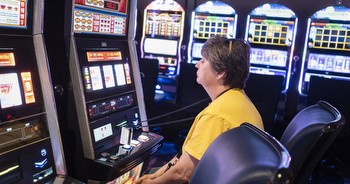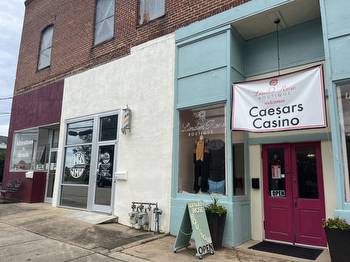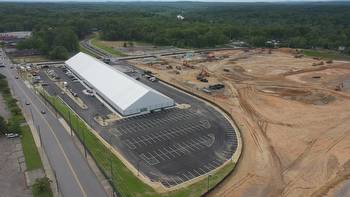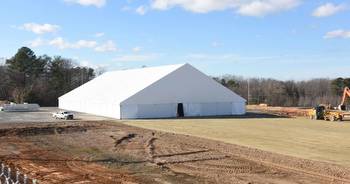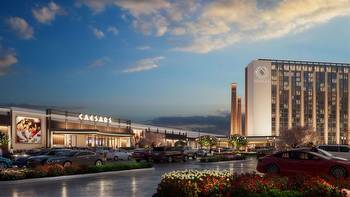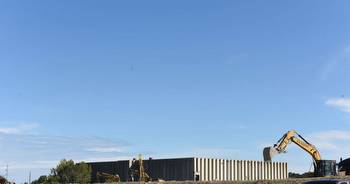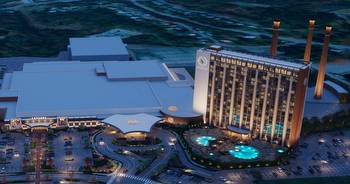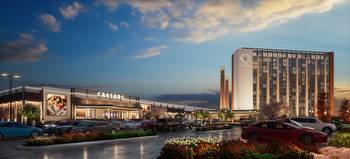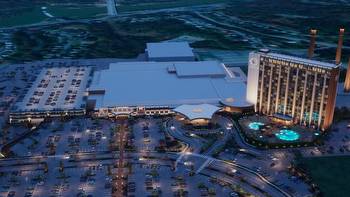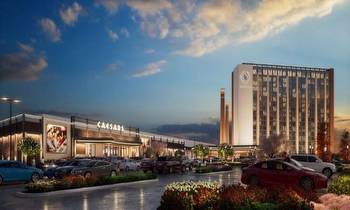A jackpot for Danville?
Casino set to open in 2023 on former mill property
The now-blighted property that was Dan River Mills when textile was king in the city of Danville will soon morph into the gleaming, $400 million Caesars Virginia casino and resort.
At one time, the 80-acre site in the Schoolfield neighborhood was the world’s largest single-unit textile manufacturing site. Now abandoned, the unsightly property represents the loss of an industry, “a failure,” says Corrie Bobe, Danville’s economic development director.
But Danvillians foresee a future when the land will take on new life as a resort complex, creating jobs and adding an expected $34 million in annual tax revenue and supplemental payments.
The new resort, expected to start construction in late 2021, will include restaurants and bars, a 300-guest-room hotel, a 35,000-square-foot conference center and a 2,500-seat live entertainment venue. The resort is expected to employ 1,300 full-time employees and generate 900 construction jobs during the construction period. It is set to open in 2023.
Thanks to brand awareness, Caesars Virginia will have access to Caesars Entertainment Inc.’s substantial loyalty membership program, which has 650,000 members within a 100-mile radius of Danville and 2.5 million members in Virginia and North Carolina.
The project didn’t become a sure bet until voters overwhelmingly passed a local referendum on casino gaming in the Nov. 3, 2020, election, along with voters in Portsmouth, Norfolk and Bristol. Early last year, the General Assembly passed legislation allowing commercial casino gaming in five Virginia cities. All began plans except Richmond, which will choose a casino operator and bring the measure to voters this year.
Some neighbors expressed concern about placing the casino near a residential neighborhood, because of crime and traffic worries. However, the majority of Danville voters were all in.
“I was pleased the percentage of voters in favor of the referendum was so high. Over two-thirds of the … voters voted in favor. The fact that there is so much support in the community allowed us to go forward confidently,” says City Manager Ken Larking. “We were pleased that we could provide transparency to the voters so they would have the information when they voted.”
The city wanted to be very deliberate about the process it used to choose an operator for the casino. “Having a careful process to help us decide on that investment will pay great dividends to us in the future,” Larking says.
Danville used a request for proposals process to narrow down the choices. The RFP went out to operators in December 2019, and the city announced that Caesars was selected as the preferred operator at a ceremony in May 2020. City Council relied on criteria provided by the Virginia Lottery to pick the best proposal.
“We had seven responses, and we concluded that Caesars was the best choice for the city,” says Linwood Wright, a consultant to the city and former mayor.
Unlike traditional economic development projects, which pit localities against one another, choosing a casino gave Danville the upper hand. “We had multiple operators competing against one another. Our challenge was that we had no experience related to the gaming industry. We leaned heavily on our consultants to guide us through the process,” Bobe says.
Caesars is investing a minimum of $400 million in capital investment to transform the Schoolfield site into a resort complex. The company paid the Industrial Development Authority $5 million for the real estate and made an upfront payment to the city totaling $15 million in December 2020. Nearly $6 million of that $15 million is going toward a new police station in the former Dan River Inc. executive building.
By year three of operation, the state-collected gaming revenue will generate $22 million in revenue each year for the city.
“To put that in perspective, that’s about equal to the total amount the city provided Danville Public Schools for their operations this year,” Larking says.
The city wants to make sure the money “is spent in a responsible, impactful way,” Bobe says. “Through a public engagement process, investment in education was highlighted as [the] top priority for our citizens.”









